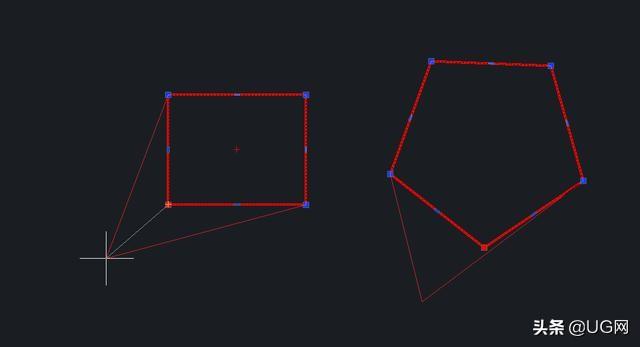《牛津英语语法:即学即练》第278页 作“相当”解的quite,今天小编就来说说关于rather修饰名词时的位置?下面更多详细答案一起来看看吧!

rather修饰名词时的位置
《牛津英语语法:即学即练》第278页 作“相当”解的quite
quite通常作“相当”或“中等程度地”解。
I feel quite hungry now.
Repairing the machine is quite difficult.
The talk was quite interesting.
We were quite surprised at the result.
《剑桥高阶英汉双解词典》第1794页quite词条
In American English quite usually means ‘very.’
在美国英语中,quite通常表示“很,非常”。
用quite的重音
在口语中,重读quite和重读形容词所表示的意思是不同的。
如果重读quite,它的意思是“相当,但不很”。其意思是消极的。
The exhibition was quite good, but I’ve seen better ones.
I get up quite early, but not as early as you do.
如果重读形容词,quite的意思是积极的(但没有very那么积极)。
The exhibition was quite good. I enjoyed looking round it.
I got up quite early. I had a lot of jobs to do.
quite还是rather?
表示赞许时,通常用quite,不用rather。
《牛津英语用法指南》(第三版)第744页489 quite
quite有两个意思。
试比较:
It’s quite good, but it could be better. (= It’s OK, not bad.)
这相当不错,但是还可以更好些。
It’s quite impossible. (= It’s completely impossible.)
这是完全不可能的。
good是“可分级的”形容词:事物可以好一点也可以差一点。
quite在肯定句中与可分级的词语连用时,常常具有像fairly或rather的含义。
impossible是不可分级的:事物要么不可能,要么可能,但是不能更多些或更少些不可能。
quite跟不可分级的词语连用时,意为completely。试比较:
I’m quite tired, but I can walk a bit further.
我相当累了,但是我可以继续走一点。
I’m quite exhausted—I couldn’t walk another step.
我筋疲力尽了——一步也走不动了。
It’s quite surprising. 这很令人吃惊。(与fairly surprising很像)
It’s quite amazing. (= absolutely amazing) 这简直令人惊异。
He speaks French quite perfectly. 他法语说得好极了。
I quite like her, but she’s not one of my closest friends.
我挺喜欢她,但是她不是我最亲密的朋友之一。
Have you quite finished? (= Have you completely finished?) 你全都干完了吗?
在美国英语中,quite与可分级的形容词连用时常常意为very,而不是fairly/rather。
与名词连用的词序
quite可以与a/an 名词连用。
如果出现可分级的形容词或没有形容词时,quite通常置于a/an前。
It’s quite a nice day. 天气可真好。
We watched quite an interesting film last night.
昨天晚上我们看了一部相当有趣的电影。
She’s quite a woman! 她真是个女人的样子了!
The party was quite a success. 这次聚会很成功!
与不可分级的形容词连用时,quite在英国英语中通常置于a/an后面:
It was a quite perfect day. 天气好极了。
(美国英语中说It was quite a perfect day.)
quite有时用在the前面,意思是exactly, completely。
He’s going quite the wrong way. 他完全走错路了。
quite the opposite恰恰相反
比较
quite不直接用在比较级前面。
She’s rather /much/ a lot older than me.
她年龄比我大不少/大多了/大一点儿。(但不能说:She’s quite older…)
不过,quite better用来表示病已完全好了。
quite similar意为“相当像”;quite different意为“完全不同”。
quite a bit/few/lot等
quite a bit和quite a few(非正式)的意思几乎与quite a lot相同。
We’re having quite a bit of trouble with the kids just now.
我们跟孩子们有不少麻烦,正在处理。
We thought nobody would be there, but actually quite a few people came.
我们以为那地方不会有人,可实际上来了很多人。
not quite
not quite意为“不完全”或“不确切”,可用在形容词、副词、动词和名词(包括与the连用的名词)之前。
I’m not quite ready—won’t be a minute. 我还没有准备好——马上就好。
She didn’t run quite fast enough for a record. 她跑得还不够快,没有破纪录。
I don’t quite agree. 我不完全同意。
That’s not quite the colour I wanted. 那不完全是我要的颜色。
rather程度副词(rather good等)
rather可以用作程度副词,意思与quite或fairly差不多,但语气更强一些。rather的这种用法在美国英语中不太常见。
The film was rather good. 这部电影相当好。
Some people rather like being miserable. 有些人倒愿意受苦。
It’s rather later than I thought. 这比我想象的还要晚。
I rather think we’re going to lose. 我更觉得我们会输。
rather常常含有“超乎常常”、“预料之外”、“超出要求”等意思。
How was the film? ~Rather good—I was surprised.
那部电影怎么样?~相当好——我很意外。
She sings rather well—people often think she’s a professional.
她唱得相当好——人们常常以为她是专业歌手。
It’s rather warm in here. Let’s open a window.
这里很热。咱们看一扇窗子吧。
与冠词连用的词序
rather一般放在冠词前面,但如果有形容词,rather也可以放在a/an后面。
That’s rather the impression I wanted to give. 那正是我想要给人留下的印象。
He’s rather a fool. 他真是个傻瓜。
Jane’s had rather a good idea. (或Jane’s had a rather good idea.)
简有个非常好的主意。
rather通常不用在没有形容词修饰的复数名词前面。
(不能说:They’re rather fools.)
2017年2月24日
,




